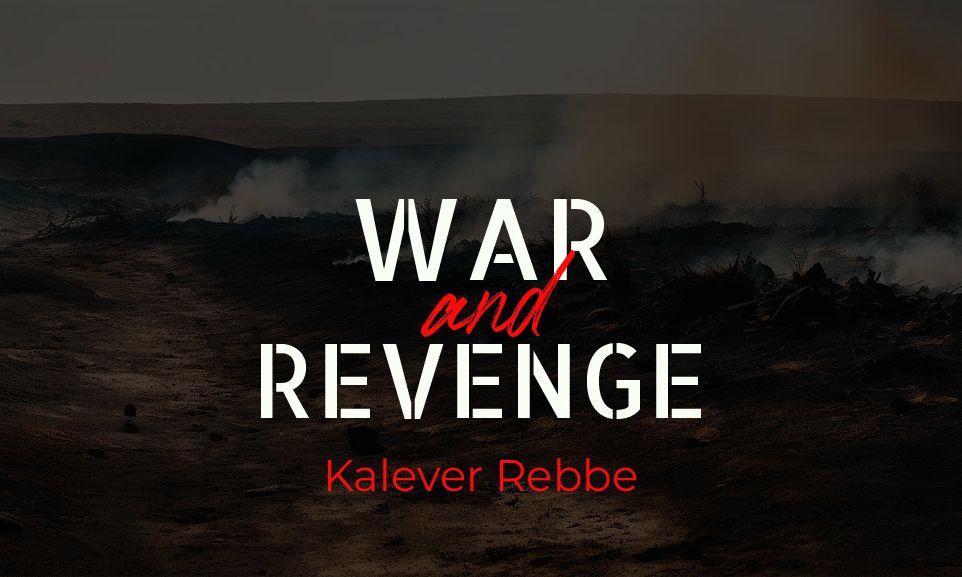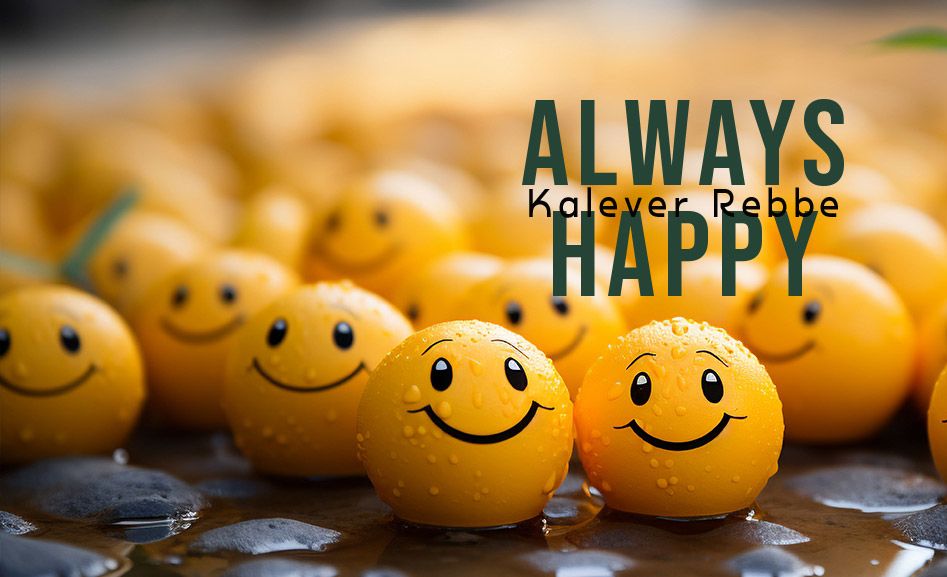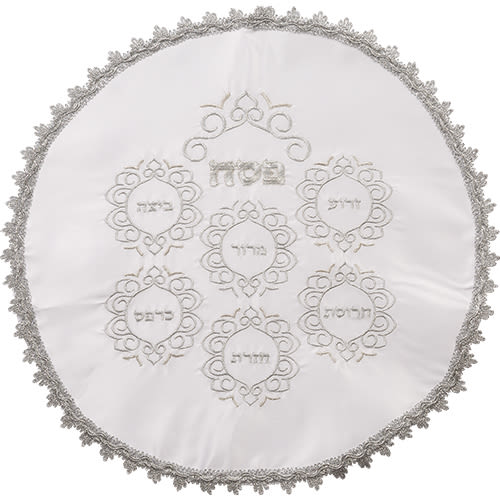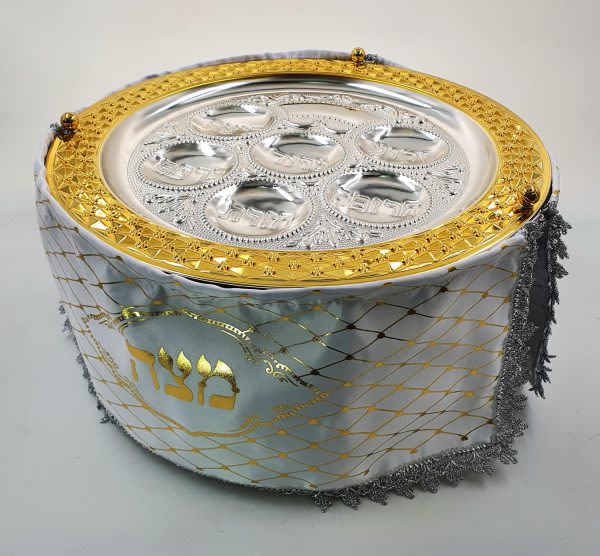
War and Revenge
We do not celebrate the death of our enemies, nor do we take revenge. Jews are guided by emuna that everything is from Hashem - even war.

“Yosef wept when they spoke to him”. (Bereishit 50:17)
The Temptation of Revenge
During war and conflict, a lot of people become absorbed by the news. They thirst for the latest updates; any tidbit that will make them feel like their side is “winning” the war.
Some people are spending a lot of time searching and looking at images taken from the battlefield. They feel tempted to see more images of destroyed buildings and injured/dead people from their enemies. Why? Because they want revenge. They want to see their enemies suffer for their aggression.
However, this is not how a yid behaves. A yid must never seek revenge. It is an emotion that contradicts the emunah that is at the foundation of Yiddishkeit.
Emunah demands that a yid has faith that everything that happens in this world is the direct result of Hashem’s Hashgachah Pratit, Therefore, when there is suffering and pain, when there is war and conflict, yidden don’t seek revenge. Rather, they acknowledge and recognize that everything – including what has been done to them by others – all occurs with Hashem’s Divine Intervention and Providence. As Chazal taught (Chulin 7a), a person cannot even move his finger if it was not decreed Above.
Certainly, people have free choice, and if a person choose to harm another, that person will be brought to justice as outlined by the laws of man and he will face the Heavenly courts for his evil actions. The victim, however, must accept that what has happened to him was ultimately decreed by the Heavens, and if this person had not inflicted that pain, Hashem would have sent other messengers to deliver that decree. The outcome would always be the same.
We Do Not Rejoice
There were times throughout history when the Jewish kings had to send their armies out to war. They would have to battle those who intended to harm the Jewish people and desecrate Hashem’s honor. However, even in the fog of war, they were careful to ensure that the soldiers never forget that the intention of the war was sincerely for the sake of Heaven. They would not allow themselves to be consumed with vengeance.
Shlomo HaMelech warned in Mishlei (24:17), “When your enemies fall, do not rejoice”. Chazal explained (Yalkut Shemoni on Mishlei) that this pasuk is even referring to the Egyptians, and – they explained – this is the reason we do not recite the complete Hallel on the 7th day of Pesach, the day when the Egyptian army drowned in the sea.
During the plague of the Firstborn, the pasuk says (Shemot 12:22), “And you shall not leave the door of his house until morning”. The Kadmonim explained, that if the Jews would have gone outside that night, they would have seen the Egyptians in complete agony over the deaths of their firstborn males. Seeing their slave masters suffering might have aroused a feeling of satisfaction and revenge. The Jews might have taken pleasure in the Egyptians’ suffering, and this could implant cruelty in their heart. This cruelty would have caused them to fall from the lofty spiritual level they had achieved through the Korban Pesach.
The Seforim (Meshech Chachma, Shemot, 12:15 and others) note, that the non-Jewish nations, even the most civilized, celebrate their victories. When they win a war, that day becomes a holiday. The Jews, on the other hand, do not rejoice when their enemies fall. They don’t celebrate their victories with a holiday.
Therefore, at Pesach, the pasuk doesn’t mention that we celebrate because the Egyptians suffered harsh judgements. Rather, we focus on the salvation that came solely because “Hashem took Bnei Yisroel out of Mitzrayim.
On Chanukah, we only celebrate and commemorate the miracle of the Menorah and the re-dedication of the Beit HaMikdash and the resumption of the service there. We don’t commemorate the downfall of the Greeks.
We also do not celebrate Purim on the day that Haman was hanged or on the day when the enemies of the Jewish people were destroyed. Rather, we celebrate the day when there was a resolution and a salvation. We celebrate the day when they did not need to worry anymore about what would happen at the hands of their enemies. We do not celebrate their deaths.
Be Like a Serpent
The Seforim HaKedoshim (Siftei Tzadikim, Parshat Kedoshim, and others) quote a teaching from the Baal Shem Tov, zt”l:
Chazal taught (Yoma 23a) “Any Torah scholar that does not take revenge and holds a grudge like a snake is not a Torah scholar”.
The Baal Shem Tov explained, that sometimes a Torah scholar is obligated by Torah law to punish evildoers who harm him. However, he must do so like a snake. When a snake kills and eats its prey, it does not rejoice because, as the Gemara explained (Taanis 8a), everything that a snake eats tastes to him like dirt. He does not enjoy it. Similarly, when a Torah scholar must act against those who have harmed him, he must do so for Heaven’s sake and not for his own pleasure. If he isn’t careful to behave like this, then he isn’t worth to be called a Torah scholar.
This provides an insight into the pasuk in our Parsha that says (Bereishit 49:16-17), “Dan will be a snake on the road“. Yaakov intended that Dan’s descendant, Shimshon HaGibur, who would punish the Philistines to avenge the Jews, should not wage that war motivated by revenge. He should not take pleasure in the downfall of his enemies. Rather, he should be like a snake who eats his prey but does not enjoy it.
Don’t Fight, Forgive
Throughout the generations, we have seen tremendously righteous tzaddikim who were harmed, victimized, and disgraced by their detractors. There was an argument made that they should act against these individuals, at least for the sake of the Torah’s honor. Nevertheless, they chose not to act. They did nothing but offer forgiveness. They were afraid that if they acted, there might be the slightest subjectivity and the most minute enjoyment in their revenge. That remote possibility made them avoid taking actions at all costs.
These tzaddikim live with the pure faith that everything that happens in the world comes from the Heavens. Not only do they not take revenge. They worry about the well-being of their foes, and they would pray for them to only have goodness.
My ancestor, R’ Issac from Kamarno, zt”l, relates that one-time R’ Elimelech of Lizhensk, zt”l, was once struck by someone on the cheek. Instead of becoming angry or revengeful, chas v’shalom, R’ Elimelech immediately declared: “Hashem, I forgive this person completely and joyously. Do not punish anyone because of me!”
A Lesson for the Brothers
Now we can have a deeper understanding of the pasuk quoted above.
Yosef never had the smallest inkling to punish his brothers for selling him. He was never revengeful. Yosef lived with the emunah that everything comes from Hashem. Therefore, he distanced himself from the very idea of revenge. It disgusted him.
Here, at this moment in the Parsha, after Yaakov has passed away, the brothers were worried that Yosef will finally take his revenge. As they said (Bereishit 50:15-17), “Now Yosef’s brothers saw that their father had died, and they said, ‘Perhaps Yosef will hate us and return to us all the evil that we did to him.'”
They sent messengers to Yosef to deliver the message (Bereishit 50:17), ‘Please, forgive now your brothers’ transgression and their sin, for they did evil to you. Now please forgive the transgression of the servants of the God of your father.’ Yosef wept when they spoke to him.
Yosef wept because this message pained him greatly. His brothers clearly felt that he would potentially take revenge because they felt that he lacked the proper emunah. Yosef wept when he realized what his brothers thought of him. As Chazal taught in Yoma (19b) that the High Priest would retire and cry if he was suspected by others of being a Tzeddoki.
Therefore, later when Yosef confronts them, he says (ibid 50:20), “… [but] God designed it for good”. He was telling them that he had the emunah that everything in this world comes from the Heavens and Hashem does everything solely for one’s good. When a person has this faith, they meticulously try to avoid being tempted by the desire for revenge.
***
The Kalever Rebbe is the seventh Rebbe of the Kaalov Chasidic dynasty, begun by his ancestor who was born to his previously childless parents after receiving a blessing from the Baal Shem Tov zy”a, and later learned under the Maggid of Mezeritch zt”l. The Rebbe has been involved in outreach for more than 30 years and writes weekly emails on understanding current issues through the Torah. Sign up at www.kaalov.org.











1/11/2024
Laib, it’s interesting that you ask about Psalm 83 since it is so relevant to our times!
Psalm 83 deals with a multinational force (Ammon, Moav, Aram, and Edom) that is coming to annihilate Israel. They even hired foreign mercinaries so that Israel’s defenses would be completely overwhelmed. The details are in II Chronicles, Chapter 20.
Their ultimate goal was to obliterate all recognition of Hashem in the world. No Jews = No Hashem.
Assaf, with prophetic insight, tells King Jehoshafat that Hashem will wage (and win) the war. The Jews’ sole role was to offer songs of praise to Hashem – “A song with musical accompaniment.” (Psalm 83:1)
In Psalm 83:18:
“Let them be ashamed and terrified forever…”
Assaf asks Hashem to completely and permanently overthrow all who attack Him. The focus was on the desecration to Hashem’s Name by these enemies – Hashem doesn’t protect His people, Hashem is weak, etc. Personal revenge played no part in the Jews’ response to their enemies.
“… then they will be disgraced and perish.”
Hashem’s enemies will naturally feel disgraced when they realize how foolish they were to try to wipe out Hashem! In II Chronicles, it describes that the enemy forces were also physically disgraced because their bodies lay unburied in the battlefield.
So, when reading these Tehillim, our focus/attitude/intention toward our enemies must remain on how victory over them will sanctify His Name. Our hope for victory must be directed toward making a Kiddush Hashem.
Indeed, Asaf ends:
“Then they will know that You, Whose Name is Hashem, are alone Most High over all the earth.”
1/11/2024
Thank you, that article was very helpful. Could you help me understand what kavanah (intention) I should have when saying verses like in Tehillim 83:18 “Let them be ashamed and terrified forever; let them be disgraced and perish.” יבשו ויבהלו עדי־עד ויחפרו ויאבדו This is talking about the enemies of Israel. There are many similar verses like this in Tehillim. תודה